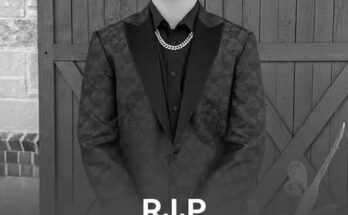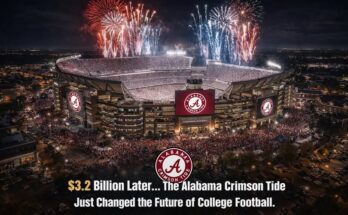Major League Baseball has handed down suspensions to both Los Angeles Dodgers manager Dave Roberts and San Diego Padres manager Mike Shildt following the explosive bench-clearing incident that erupted during the ninth inning of Thursday night’s heated showdown at Dodger Stadium in Los Angeles on June 19, 2025. The fracas began after Dodgers reliever Jack Little hit Padres outfielder Fernando Tatis Jr. on the hand with a pitch, touched off a chain reaction and culminated in a physical confrontation that quickly spiraled out of control — involving players, bench personnel and even the managers themselves, ultimately landing both Roberts and Shildt with one-game suspensions and undisclosed fines. Padres reliever Robert Suárez received a three-game suspension, which he is appealing.
From the outset of the four‑game series that week, tensions between these division foes had been escalating steadily. On Tuesday, Dodgers pitcher Lou Trivino hit Tatis, prompting outrage in the Padres camp. In what many viewed as retaliation, Padres rookie Randy Vasquez plunked Dodgers’ star Shohei Ohtani during a later inning. Warnings were issued, but tempers remained flared. Then on Thursday, the flashpoint: with San Diego leading 5‑0 in the ninth, Jack Little’s fastball struck Tatis on the hand, inciting immediate backlash. Padres manager Mike Shildt stormed onto the field to tend to Tatis, confronted the Dodgers dugout, and exchanged bitter words with Roberts — setting the stage for a chaotic eruption.
As Shildt shouted across the diamond, Roberts sprinted out from the Dodgers dugout to confront him. In video footage, Roberts is seen pushing Shildt during their heated exchange. That contact sparked both dugouts emptying as players rushed in. Umpires worked frantically to create separation, but for a tense moment the benches teetered on full brawl. Roberts and Shildt were both subsequently ejected by officials. Meanwhile, Padres reliever Robert Suárez retaliated by hitting Ohtani in the back—an act that led to his expulsion
Following the game, Roberts acknowledged his role, telling reporters he felt provoked by Shildt’s shouting and that his protective instincts kicked in over his players. “I probably got a little too emotional,” he conceded. Shildt defended his reaction as standing up for his star player, asserting that he could no longer tolerate what he perceived as repeated targeting of Tatis by Dodgers pitchers: “After a while, enough’s enough… teams I manage don’t take anything.”
In response to the incident, Major League Baseball swiftly disciplined all involved. Suárez received a three-game suspension and a fine for intentionally hitting Ohtani, and he is currently appealing. Both managers were suspended for one game and fined undisclosed amounts for “unsportsmanlike conduct and for contributing to inciting the benches‑clearing incident.” Their suspensions are effective immediately and cannot be appealed. No other players were disciplined, though warnings had already been issued prior to the showdown.
The timing of the suspensions ensured both Roberts and Shildt would miss their teams’ next games—Roberts during the Dodgers’ home game against Washington Nationals, Shildt during the Padres’ home opener vs. Kansas City Royals. Suárez’s absence looms large for San Diego’s bullpen, an area that often decides tight NL West races.
Medically, Tatis escaped serious harm. He underwent X‑rays which returned negative, and further images cleared him to resume play. He is expected to bat in San Diego’s next game, though the incident undoubtedly left a psychological and emotional mark on the young slugger.
This is far from the first time that the Padres and Dodgers have erupted in tension. Their rivalry gained momentum particularly in the 2024 postseason NLDS, peppered with intense plays, emotional outbursts and even fan interference, including a notorious Profar collision and a crowd-pleasing yet chaotic atmosphere. Their divisions have seen flare-ups over hit batsmen and verbal sparring countless times, and this latest eruption feels like the latest chapter in a multi-season grudge.
Beyond the implications for this season, the incident dredges up past histories. Bench‑clearing brawls have long punctuated baseball lore—from the infamous 1965 “Battle of Candlestick” between the Giants and Dodgers to the 1984 Braves–Padres bean brawl, when a pitcher even brandished a bat and fans joined the fray. The Dodgers and Padres have had heated history before, but Thursday’s dust‑up ranks among the most heated of recent memory — managers thrown into the mix always escalates the stakes.
For both Roberts and Shildt, these suspensions will serve as public demerits. MLB has drawn a line: cooler heads are the responsibility of managers. Roberts, a former teammate in San Diego and longtime Dodgers skipper, has never shied from standing up for his players. Shildt, a fiery voice in the Padres dugout, has built a reputation for protecting his club. But baseball’s governing body made it clear that words or actions sparking confrontation—even in defense of a player—cross into misconduct when they ignite a bench-clearing melee. Their fines and suspensions reflect MLB’s enforcement of accountability, but also a recognition that they did not involve violence or physical harm to players.
The short-term impact is significant. The Dodgers lose their general’s voice and tactics for a key division stretch; the Padres are without their manager and a key reliever. The franchises meet again soon—this weekend in San Diego—making both game-day leadership and bullpen depth more pivotal than ever. But when Roberts, Shildt and Suárez return, the league will still be watching. A repeat confrontation could lead to harsher consequences—something neither side wants.
Beyond the green and orange turf of Dodger Stadium, fans are polarized. Dodger loyalists see Roberts’s ejection and bench-leaving as overreaction, while Padre faithful laud Shildt for defending their franchise’s rising star. Social media exploded on Friday, with heated threads debating whether MLB should penalize more players, force replay reviews, or enforce clearer warnings to prevent similar events. The specter of violence in MLB—even in largely worded conflicts—remains a concern, prompting calls for revisiting the rules around player and coach conduct. Meanwhile, traditionalists argue that baseball’s unwritten code still holds—retaliation for hit batsmen is part of the game, but cross‑the‑dugout shouting and dugout exits cross the line. MLB’s current stance tries to thread that needle, punishing managerial instigation more than player retaliation.
As the shockwaves continue, pundits remind us this isn’t mild shelve drama—it affects standings. Both teams trail the Arizona Diamondbacks and San Francisco Giants in the NL West. Dropped games now carry added weight. The Padres are in the midst of a crucial homestand, and bullpen options shrink with Suárez down; the Dodgers’ lineup remains potent, but managerial strategy will be missing for at least one game. Every shift—pitching changes, pinch hitting, defensive substitutions—lacks Roberts’s hallmark intuition. Both sides hope the next chapter is decided on the field, not in front of cameras or after ejections.
MLB’s disciplinary report, distributed Friday afternoon, reiterated that any individuals leaving the dugout or bullpen without clear umpire direction will face penalties. Fines alone won’t be enough — automatic suspensions are now on the table. Both Roberts and Shildt are keenly aware that a second strike could carry heavier consequences, potentially multiple-game suspensions, larger fines, or even postseason ineligibility. The unwritten message: cooler heads prevail, even in fiery rivalries.
The public waits now for next steps. Will Suárez win his appeal and return quickly? Will either manager issue further statements? Will MLB extend clearer written guidance on manager conduct? Only time will tell. For now, Friday’s wave of punishment signals MLB’s intention to check unruly behavior while acknowledging baseball’s inherent passions.
Thursday’s confrontation will be remembered not just for its spectacle but for its aftershocks—sidelining key figures, intensifying division standings, and raising questions about baseball’s unwritten rulebook. As the Dodgers and Padres reconvene this weekend, cooler minds will still meet scorched earth. If things go quiet, it may be a victory for order. If the next pitch is plunked, history shows the flame can flare again — with bigger consequences for those caught shoving the line.


